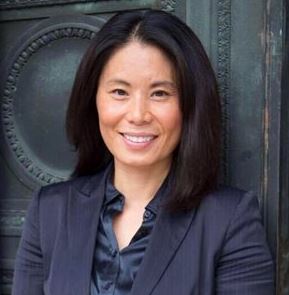In Minnesota, there are nearly 300 district court judges who preside over matters in ten judicial districts. While the Minnesota Rules of Court provide attorneys with significant information applicable to court proceedings, each judge may have his or her individual preferences with respect to motion practice and courtroom conduct.
In an effort to assist attorneys who may be appearing before a judge for the first time, the MSBA Civil Litigation Section Governing Council provided all district court judges with a brief survey. The responses that we received are organized on the right by judicial district and then alphabetically by judge’s name. We hope you find these responses to be helpful in your preparation for district court appearances.
For information about this project or to report an error in any judicial directory listing, contact Kara Haro, MSBA staff liaison to the Civil Litigation Section.
Get your second district guide for Amazon Kindle
here.
Second Judicial District Judges | Courtroom Preferences
Vuelo, Sophia
 District Court Judge
District Court Judge
Counties: Ramsey
State Court Bio: View Bio
Contact with chambers:
- Set forth your preferred method to contact chambers (telephone, email, etc.). 2ndJudgeVueloChambers@courts.state.mn.us
- To whom may attorneys direct scheduling/logistical questions? Judge Vuelo's Law Clerk
- To whom may attorneys direct substantive questions? Judge Vuelo's Law Clerk
Motion Practice:
- Set forth your practices and procedures for scheduling motion hearings. No motion will be granted without court approval on all family matters
- Do you accept telephone calls from attorneys to rule on discovery disputes that occur during depositions? No
- How much time do you allot for motion hearings? 30 minutes max
- Set forth your practices and procedures with respect to attending a hearing by telephone or video conference. All technology is welcome
- Set forth your practices and procedures with respect to discovery motions. All deadlines shall be complied with
- Set forth your practices and procedures with respect to stipulations of the parties, including stipulations for protective orders. They should be clearly identified in your pleadings
- Do you have particular requirements or procedures relating to requests to amend the scheduling order? Contact my judicial law clerk
- Set forth your practices and procedures with respect to default proceedings. Contact my judicial law clerk
- Set forth your practices and procedures with respect to handling emergency motions. Go through the appropriate rules of civil procedure
In-court proceedings:
- Set forth your practices and procedures with respect to attorney's use of technology in the courtroom and during trial. Flexible
- Set forth your practices and procedures with respect to the submissions of additional legal authority or other materials at or after oral argument. Only base arguments rooted in sound case law
- Do you permit parties to bifurcate oral argument so different attorneys address different legal issues? Yes
Pretrial procedures:
- Describe your preferred procedures for pretrial settlement conferences, including the timing of such conferences, persons who must attend, whether persons may attend by telephone or video conference, and how you participate in settlement discussions. All parties should come fully prepared to discuss substantive issues and possible resolution
- Set forth your practices and procedures for handling motions in limine. Clearly outline your issue(s)
- What is your schedule for a typical trial day? 9 am - 4:30 pm
- Set forth your voir dire procedures. Court has a dozen template questions I start with, then I turn it over to the attorneys
- Set forth your practices and procedures with respect to courtroom decorum, including movement in the courtroom, use of a podium, whether attorneys should sit or stand, and how to address witnesses. Court decorum shall be maintained at all times, do not approach the bench unless ask to approach, but no need to rise when speaking unless the atty prefers to.
- Do you impose time limits with respect to opening statements and closing arguments? No
- Identify your practices with respect to the use of technology in the courtroom during trial. Flexible
- Set forth your practices and procedures with respect to marking and using exhibits. Done in advance for the court reporter's benefit
- Set forth your practices and procedures for handling objections. Handle not in the presence of jurors
- Set forth your practices and procedures with respect to the use of deposition testimony. Depends
- May attorneys obtain daily transcripts during trial? If so, what procedure should attorneys follow? Yes, contact the court reporter for their rates
- Set forth your practices and procedures with respect to attorney requests to contact jurors at the conclusion of trial. Leave up to the jurors willingness to talk with attys
Other matters:
- Set forth any other preferences, practices, or procedures attorneys and parties may find helpful. Attys should remember that being professional and courteous is expected at all stages of the proceedings; including email communications with the court and opposing counsel, that the court will always listen to both sides.